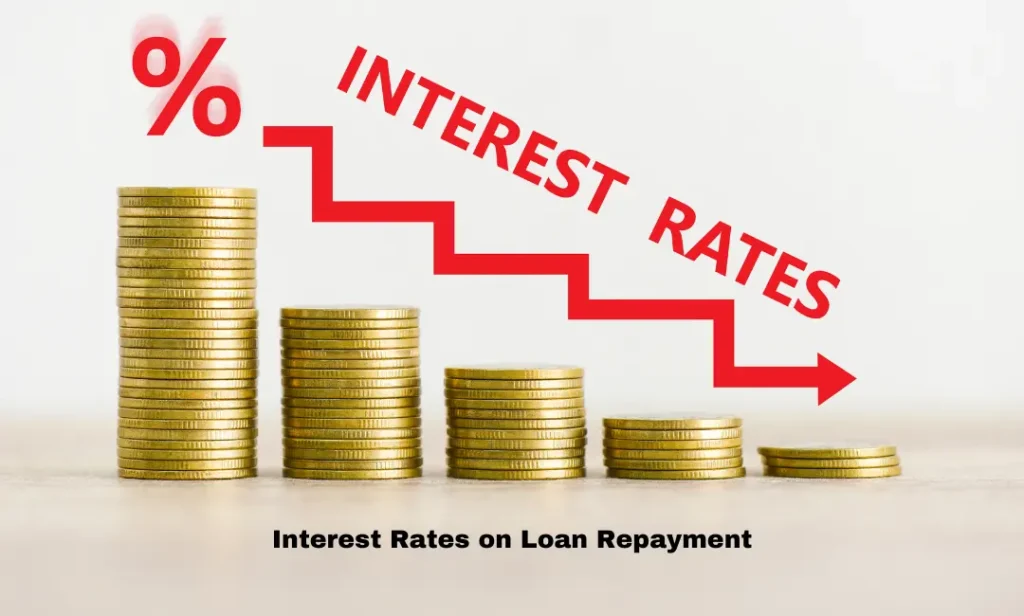The Impact of Interest Rates on Loan Repayment: What You Need to Know
Understanding how interest rates affect loan repayment is crucial for anyone considering borrowing money. Whether you’re taking out a mortgage, personal loan, or student loan, the interest rate can significantly influence your total repayment amount and monthly budget. In this article, we’ll explore the impact of interest rates on loan repayment, how to navigate varying rates, and strategies to manage your loans effectively.
What Are Interest Rates?
Interest rates represent the cost of borrowing money, typically expressed as a percentage of the loan amount. When you take out a loan, the lender charges interest as compensation for the risk they take in lending you money. Interest rates can be fixed or variable, and they play a vital role in determining how much you will ultimately repay over the life of the loan.

How Interest Rates Affect Loan Repayment
1. Total Loan Cost
The interest rate directly impacts the total amount you will pay over the life of the loan. A higher interest rate means a higher total cost, while a lower rate results in lower overall repayment amounts.
Example: For a $20,000 loan over five years:
- At a 3% interest rate, you might pay around $3,200 in interest.
- At a 7% interest rate, that amount could increase to approximately $6,000.
2. Monthly Payments
The interest rate also affects your monthly payments. Higher interest rates lead to larger monthly payments, which can strain your budget.
Example: Continuing the previous example, a 3% rate might result in a monthly payment of about $360, while a 7% rate could raise that payment to around $450.
3. Loan Terms
Interest rates can influence the loan term you choose. Borrowers may opt for longer loan terms to reduce monthly payments, but this often results in paying more interest over time.
Consideration: A longer loan term at a higher interest rate can lead to a significant increase in the total cost of the loan.
4. Amortization Schedule
The interest rate affects the amortization schedule, which outlines how much of each payment goes toward interest versus principal. Higher rates mean more of your early payments go toward interest, prolonging the time it takes to build equity in the loan.
5. Impact on Variable Rate Loans
For loans with variable interest rates, changes in the market can lead to fluctuating payment amounts. A rising interest rate environment can increase your monthly payment and overall repayment costs significantly.
Current Economic Factors Influencing Interest Rates
Several economic factors can affect interest rates, including:
- Central Bank Policies: Central banks, such as the Federal Reserve in the U.S., set benchmark interest rates that influence lending rates across the economy.
- Inflation: Higher inflation typically leads to higher interest rates as lenders adjust to maintain their profit margins.
- Economic Growth: A growing economy can lead to increased demand for loans, which may push interest rates higher.
- Market Competition: Increased competition among lenders can drive interest rates down as they seek to attract borrowers.
Strategies for Managing Loan Repayment Amid Interest Rate Changes
1. Shop Around for the Best Rates
Before taking out a loan, compare rates from various lenders. Even a small difference in interest rates can lead to significant savings over the loan term.
2. Consider Fixed vs. Variable Rates
Evaluate whether a fixed-rate or variable-rate loan best suits your financial situation. Fixed rates provide stability, while variable rates may offer lower initial rates but come with the risk of rising costs.
3. Refinance When Possible
If interest rates decrease or your credit score improves, consider refinancing your loan to secure a lower rate. This can reduce your monthly payments and total loan cost.
4. Pay Extra on Principal
If your budget allows, make additional payments toward the principal balance. This can reduce the overall interest you pay over the life of the loan and help you pay off your debt faster.
5. Create a Financial Buffer
Building an emergency fund can help you manage loan payments during unexpected financial challenges, such as job loss or medical emergencies.
6. Stay Informed About Economic Trends
Keep an eye on economic indicators and interest rate trends. Understanding the broader economic environment can help you make informed borrowing and repayment decisions.
Conclusion
Interest rates play a pivotal role in loan repayment, affecting everything from total costs to monthly payment amounts. By understanding the impact of interest rates and employing effective strategies to manage your loans, you can make informed decisions that support your financial goals. Whether you’re applying for a mortgage, personal loan, or any other type of financing, being aware of how interest rates influence your repayment can lead to smarter financial choices.





